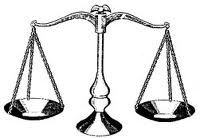Addiction
Addiction: A Matter of Choice?
High levels of dopamine take the freedom out of free choice
Posted August 2, 2012
Nobody chooses to be addicted. But as people become increasingly hooked, they may increasingly choose to take the pill or the drink, to gamble or to purge, and that’s the thing we need to examine. What is the role of choice in the onset of an addiction? What is its role in recovery?
The voices that oppose the “choice” model often argue that addictive behavior is nothing like free choice. It is like a compulsion. There is a feeling of need or desire that compels one to choose to use. From the “disease” camp, this argument is further bolstered by our understanding (as described last post) that addiction really does change the functioning of the dopamine system. Since our organ of goal-pursuit (the nucleus accumbens—NAC—or ventral striatum) is thus compromised, how could we possibly make free choices? Finally, opponents of the “choice” model argue that framing addiction as choice just invites the humiliations and accusations, both from within ourselves and from others, that become so unbearable. “If it’s a choice, then you damn well need to choose differently, and that’s your responsibility!” That usually makes things worse, not better.

The problem, I think, comes with the phrase “free choice”. Who said choice is free? Neuroscientists ascribe choice to the anterior cingulate cortex (ACC), a region that monitors and selects among alternative action plans based on their likely consquences. But the ACC has to contend with impulses, generated in the ventral striatum. The v. striatum is responsible for pursuing goals and focusing attention on what's likely to be most rewarding. And its fuel is dopamine, pumped up from the midbrain in response to cues associated with reward. So choice involves a balancing act, between the blind urges of the v. striatum and the more rational perspective of the ACC.
With addiction, the ACC is increasingly weakened by ego fatigue, and the v. striatum responds ever more strongly to gouts of dopamine triggered by addictive cues (including images, thoughts and memories). So choice becomes increasingly irrational, increasingly spontaneous, and increasingly uncontrollable. Then should we still call it “choice” at all?
One of the most persuasive advocates of the choice model is Gene Heyman. For Heyman, addiction is a result of choosing what is most rewarding in the moment at the expense of long-term gains: choosing ‘‘locally’’ rather than ‘‘globally.’’ He cites studies of delay discounting that investigate these effects. Remember the marshmallow test? Same idea. Rewarding events are much more attractive if they are expected “now” rather than “later”. But this poses a problem: repeatedly choosing the immediate reward makes both immediate and long-term rewards less desirable. In terms of the immediate benefits, heroin becomes expensive, boring, and smeared with self-rebuke. It’s never as good as it was the first time. But the value of long-term rewards goes down as well. Once your marriage is on the rocks, you’ve lost your job, and/or you’re deeply in debt, the future doesn’t hold much attraction at all. It becomes less and less rewarding. So the immediate reward, a shot of heroin, remains the best option.
On any single occasion, says Heyman, the local choice continues to be valued above the global choice. In other words, an immediate reward—‘‘one more time,’’ as addicts often tell themselves—is always more attractive than waiting for the long-term picture to get brighter.
What’s wrong with the "choice" model? It sounds pretty rational. Just a problem of behavioral economics. We keep choosing what feels best. And that also means that we can choose differently, providing a gateway to recovery.
What’s wrong is that the "choice" model ignores the brain. Big mistake! From a brain’s-eye view, the reason people choose the immediate reward is that dopamine highlights immediate possibilities. That’s its function, and has been throughout evolutionary time. Research shows that dopamine rises proportionally as the goal gets closer and closer at hand, driving motivation with it. Now, if that's the case for marshmallows and other normal rewards, imagine how powerful the dopamine surge is in response to addictive substances or acts! That swelling wave of dopamine, announcing the availability of a supremely attractive reward, thoroughly recasts the balance between present and future appeal. To choose future gain, over immediate reward or relief, becomes incredibly difficult when every synapse in the striatum and frontal cortex is resonating to the “neural now”. Especially once ego fatigue sets in.
So, yes, the addictive act is a choice. Each and every time. That means that there is always the possibility of saying No. Yet, saying No is incredibly difficult, and that’s a problem the “choice” camp can't solve...
...without the help of neuroscience.


